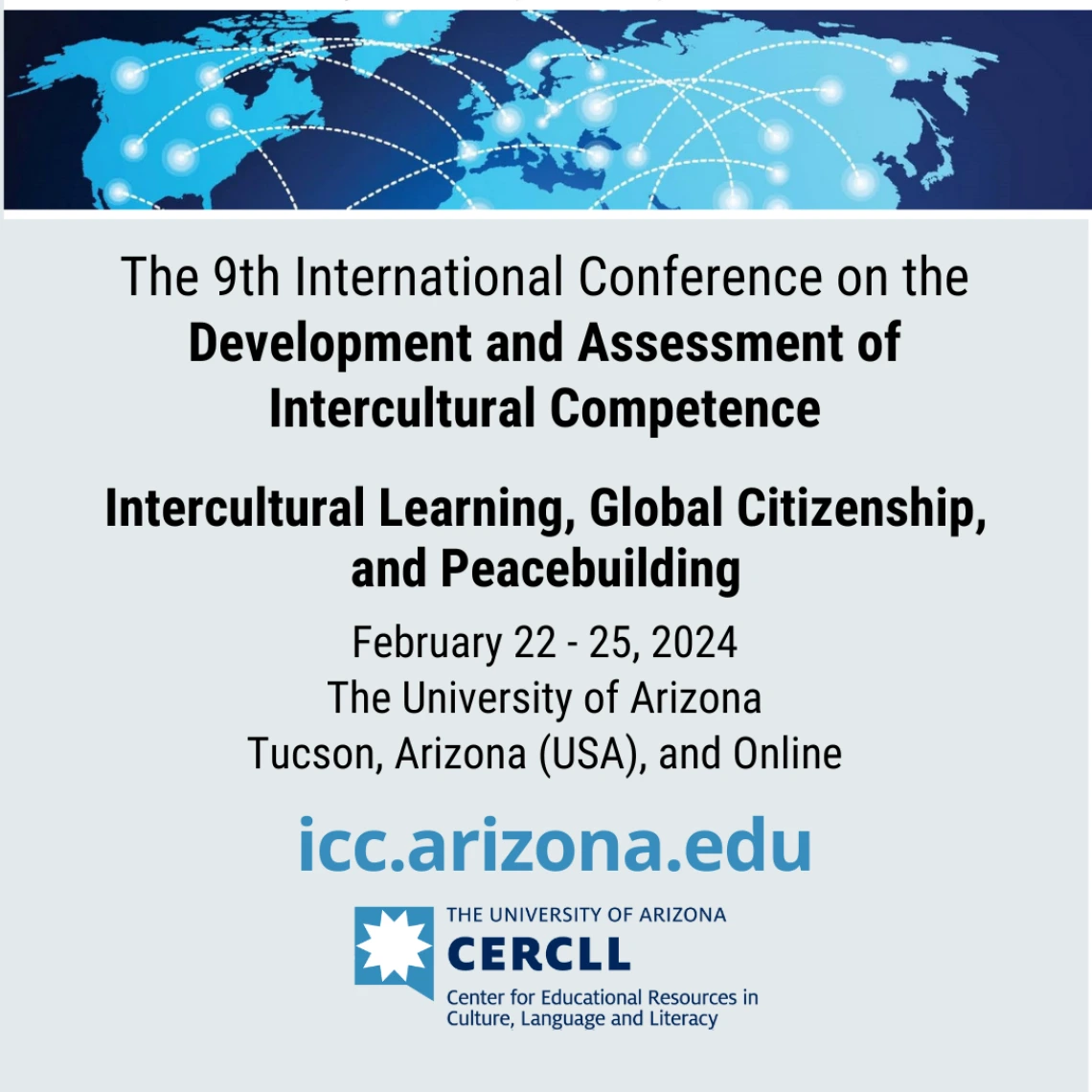
When
Promote peaceful and inclusive societies for sustainable development, provide access to justice for all and build effective, accountable and inclusive institutions at all levels.
Peacebuilding here is focused at the macrolevel of government actors and institutions, including educational organizations; however, work within language and culture education (e.g., Oxford et al, 2020) suggests that individuals, including those in conflict-ridden parts of the world, often cite inner and interpersonal dimensions of peace as central. What roles might intercultural learning play in fostering peace across and between these disparate levels? What might an intercultural education for peacebuilding that is cognizant of disparity and pain look like (see Bigelow, 2016; Porto & Zembylas, 2022)? What kinds of connections between intercultural peace and other dimensions including inner peace and ecological peace can our language curricula and programs help students to explore (see Oxford, 2017)? How can language educators promote respect for all, build a sense of belonging to a common humanity, and help learners become responsible and active global citizens (see UNESCO’s definition of Global Citizenship Education)?
This ninth iteration of the Intercultural Competence conference is organized by the Center for Educational Resources in Culture, Language and Literacy (CERCLL), a Title VI Language Resource Center at the University of Arizona. For all the conference information, visit the ICC Website.
Register today!
https://icc.arizona.edu/24reg/ICC 2024 features plenary presentations by Dr. Larisa Kasumagić Kafedžić and Adam Strom (Re-Imagining Migration). The focus will be on how intercultural learning might foster peace; what intercultural education for peacebuilding that is cognizant of disparity and pain might look like; connections between intercultural peace and other dimensions that our language curricula and programs could help students to explore; and how language educators can promote respect for all, build a sense of belonging to a common humanity, and help learners become responsible and active global citizens.
Conference Presentations of Special Interest to K-12 Educators:
- Access, Benefits and Challenges in Global Virtual Exchange Programs for Young Learners - Liudmila Klimanova (University of Arizona), Mirjam C. Hauck (The Open University), Loye Ashton (Class-to-Class), James A. Elwood (Meiji University), & Nael Alami (Modern University for Business and Science)
- Fulbright-Hays GPA as Experiential Professional Development - Abby S. Limmer (University of Arizona), Julie Ellison (University of Arizona), Mickey Marsee (Chandler-Gilbert Community College), & Rosa Clara Salazar (United High School)
- Fostering Empathy and Diverse Mindset through International Exchanges - Noriko Okubo (Knox English Network, NPO), Tomoko Graham (Harvard University), Naemi McPherson (Brown University), Yoshihiro Nakajima (Osaka Metropolitan University), & Elena Yoo (Hawaii Baptist Academy)
- K-12 Chinese Language Teachers’ Professional Identity in Times of Tension - Wenhao Diao (University of Arizona), Yi Xu (University of Pittsburgh), & Yang Xiao-Desai (San Francisco State University)
- From Bullying to Belonging: Stories Build Peace and Ethnocultural Empathy - Emily White (University of Utah)
- Equity Audit of a Teacher Education Program: Promoting Inclusion - Josh Tolbert (Indiana University East) & Amanda Shufflebarger (Tucson Unified School District)
- Teaching for Global Competence with Literature - April A. Mattix Foster (George Mason University), Kathleen Ramos (George Mason University), Sarah Rich (George Mason University), & Rebecca Eisenberg (George Mason University)
- Strategies to Challenge Stereotypes and Embrace Shifting Identities - Anne Haggerson (US Department of State's English Language Programs)
- Democracy & Citizenship Learning Cycle with Pre-Service Language Teachers - Rebecca Stuvland (Inland Norway University of Applied Sciences and University of Stavanger, Norway)
- Teachers Cultivating Interculturality and Criticality during Study Abroad - Christelle Palpacuer Lee (Rutgers Graduate School of Education, Rutgers The State University of New Jersey) & Erin Kearney (Graduate School of Education, University at Buffalo)
- Global Citizenship and Multilingual Competences - Tony Johnstone Young (Newcastle University, UK)
- Decolonizing Secondary Foreign Language Curriculum for Peacebuilding - Natalia Tereshchenko (Network International School)
Interested in more professional development opportunities?
Take a look at these in-person workshops that are happening during our 2024 Intercultural Competence Conference: Intercultural Learning, Global Citizenship and Peacebuilding
There will be three in-person pre- and post-conference workshops for which attendees can register separately. You can also register for the workshop(s) alone, if you don't want to attend the rest of the conference. Until February 5th, registration fees are $35 standard, and $25 for students, retirees and K-12 teachers.
Continuing education certificates will be provided.
Workshops on Thursday, February 22, 2024, 1:00 pm - 4:00 pm
Culture-General Approach in Business Language Courses: Creating Materials,presented by Susana Pérez Castillejo (University of St. Thomas, in St. Paul, Minnesota, United States)
- Introduce participants to the principles of place-based learning: models and frameworks.
- Engage participants in hands-on practice with place/mapping-based tools for implementation.
- Create a place-based activity that fits with participant goals
Workshop on Sunday, February 25, 2024, 9:00 am - 12:00pmDeveloping Global Citizenship in Virtual Exchange,presented by Robert O’Dowd (Universidad de León, Spain), Markus Ritter (Ruhr-Universität Bochum, Germany) and Sina Werner (Ruhr-Universität Bochum, Germany)
All the details, including presenter biographies and full abstracts are here: https://icc.arizona.edu/24reg/
Questions? Contact us at: cercll@email.arizona.edu
Co-sponsored by:
- The Second Language Acquisition and Teaching (SLAT) Program at the University of Arizona
- College of Humanities, University of Arizona
- College of Social and Behavioral Sciences, University of Arizona
- Arizona International
- Center for East Asian Studies (CEAS) at the University of Arizona
- Center for Latin American Studies (LAS) at the University of Arizona
- Center for Middle Eastern Studies (CMES) at the University of Arizona
- Center for Advanced Language Proficiency Education and Research (CALPER) at Pennsylvania State University
- Center for Applied Second Language Studies (CASLS) at the University of Oregon
- Center for Urban for Language Teaching and Research (CULTR) at Georgia State University
- National Foreign Language Resource Center (NFLRC) at the University of Hawaii at Manoa.

